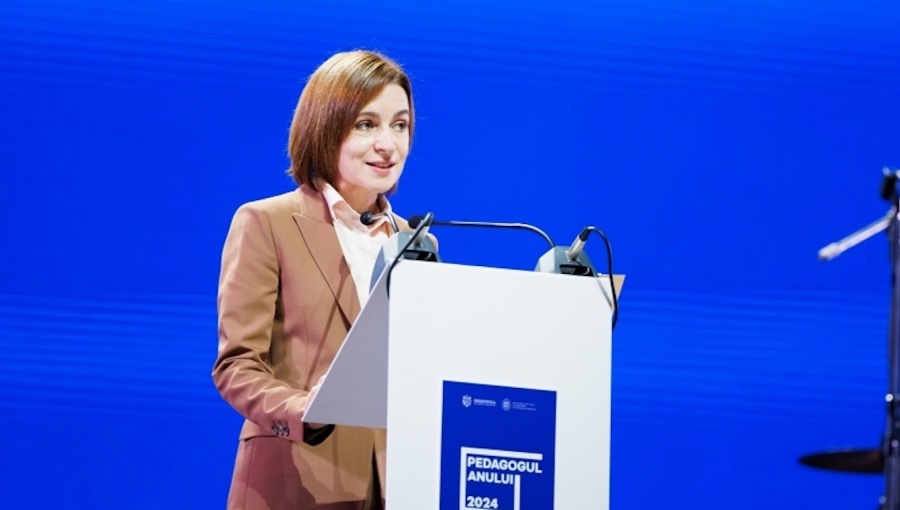Less than a week before the key presidential elections in Moldova, two new developments have brought pro-EU President Maia Sandu closer to a second term in office.
The third-placed candidate in the first round of voting, Renato Usatii, refused to support Sandu’s challenger in the runoff Alexandr Stoianoglo, furthermore claiming Russia pressured him to support the Socialist candidate. Separately, Sandu announced an imminent government reshuffle to address failures of the past – a move that should consolidate her position among the significant segment of pro-EU voters disappointed by the performance of the executive in Chisinau.
After the presidential debate last weekend, Sandu thus marks two important steps tilting the balance in her favour, although the recent developments in Georgia — where Georgian President Salome Zourabichvili claimed a “Russian special operation” enabled Georgian Dream’s victory — indicate caution is needed in regard to the magnitude of the Russian involvement in the electoral process.
A possible third element that might help Sandu in the second round is the fact that Stoianoglo refused to show up to the second public debate organised by Moldova’s public TV station claiming that journalists working for the state media would be biased.
In a much expected speech on October 28, Usatii refused to support Sandu as he did four years ago, but advised his electoral base not to support Stoianoglo either.
It is the most Usatii – who has often been described as a pro-Russian candidate by the mainstream media – could do for Moldova’s pro-EU president, after he came under severe attacks from both the pro-EU politicians and Socialists. His position (partly in favour of Sandu) may indeed be a result of Usatii’s rivalry with Socialist leader Igor Dodon – but this is of secondary importance where the impact on the presidential race is concerned.
Usatii claimed that Russia pressured him to step down ahead of the first round in the presidential elections in favour of Stoianoglo.
“They tried to pressure me from Moscow to step down in favour of Stoianoglo, and when I refused, they threatened me with a new criminal case and conviction in absentia on the old case, which they also started against me,” Usatii said.
In separate news, Sandu announced that by the end of this year, some members of the government are to be changed. Although she did not provide any details, the president explained that she “talked to the citizens in the territory and found out where the most problems are and where changes are needed”.
“Yes, we made several mistakes … Yes, I believe we need to make changes in the governing team and I have heard [from people] where changes are most needed. I believe that this must happen by the end of this year,” Sandu said during a televised address on the Moldova1 station.
Accepting the government failed to meet citizens’ expectations particularly in terms of fighting corruption is an important step Moldova’s pro-EU authorities must take, besides engaging ethnic minorities, in order to gain broad support for the EU integration process.
